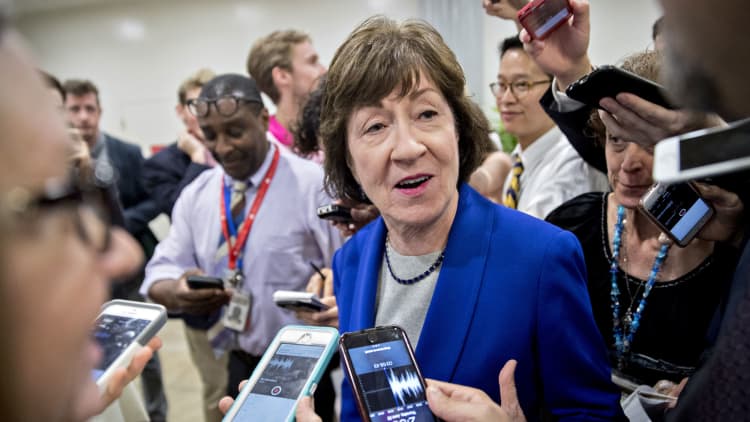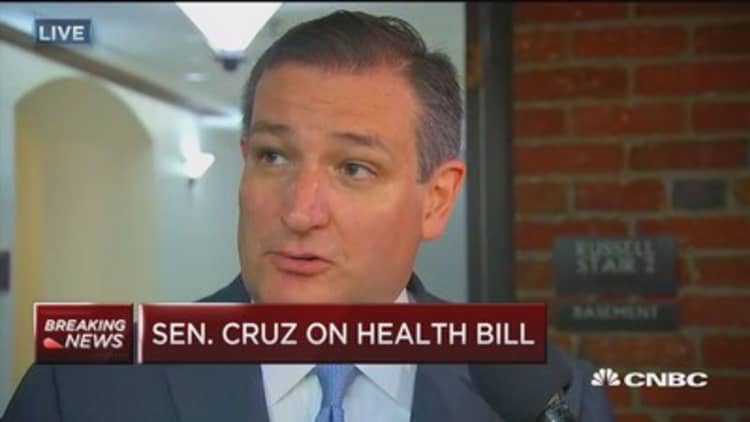
Two down, one to go.
The brand-new Republican bill to replace Obamacare ran into a huge, old problem right away Thursday when two GOP senators who had problems with the original version said they would vote against the new plan.
The solid opposition by Rand Paul of Kentucky and the qualified opposition by Maine's Susan Collins means that if just one other Republican senator declares a "no" vote on the revised bill, it will likely be dead in the water.
Paul said he will vote against the new bill.
Collins said she will vote against putting the bill on track to passage "unless I learn something new."
And at least five other GOP senators reportedly indicated Thursday they are undecided on whether to vote for a motion that would allow the bill to head for a final vote by the Senate.
The Republicans hold 52 of the Senate's 100 seats.
To pass the bill, the GOP needs at least 50 yes votes from senators, with the understanding that Vice President Mike Pence, a Republican, would cast a tie-breaking vote. Every one of the 48 Democratic senators and two independents are expected to vote against the bill.
Opposition by Collins and other moderate Republicans and from conservatives such as Paul caused GOP leaders to rewrite their bill after realizing the original version had no chance of passing.
"At this point, unless I learn something new, I am a 'no' on [the] motion to proceed," Collins said, according to NBC News.

Republican leaders have said they will hold a vote on a motion to proceed with their bill next week, after a Congressional Budget Office analysis of it is released. If that motion fails, the bill will not be able to proceed for consideration.
If the motion passes, senators would then be able to offer amendments to the bill.
Collins said that for her to support the bill, the CBO analysis would have to show that there would be less of a negative effect on the nation's Medicaid program than the original version would have had.
Collins added that she does not think the CBO would make such a finding.
The CBO, in analyzing the earlier version, estimated it would lead to 22 million more Americans lacking health insurance by 2026 than if the current law remained in place. Millions of those people would have otherwise had health coverage through Medicaid, a government-run program that serves primarily poor people.
Republican leaders have struggled for weeks to craft a bill that will please conservative senators, who favor an aggressive repeal of Obamacare, while at the same time getting support from moderates, who oppose cuts to Medicaid and Planned Parenthood.
Sen. Marco Rubio, R-Fla., said Thursday he wants to make sure the bill would benefit residents of his state before deciding whether to vote for it.
Rubio added that it would be difficult to support a bill that would punish what he called a fiscally responsible state such as Florida.


